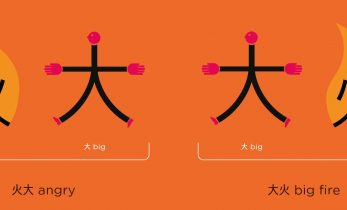Greater than 3 minutes, my friend!
3 Reasons Why We Just Love Editing
Yesterday, I was sitting next to two senior students of Translation Studies at a university course session in Style Editing. This was the third session we happened to attend, and the speaker was already giving us attendees a two-page document to edit and share our comments with the rest of the group. Most of the attendees are somewhat connected with Language and Literature Studies, few are professional editors and translators already, and some come from Mass Communication programmes.
As we went through the copy given for yesterday’s task, the speaker would ask us to provide feedback on the structures, the style, the commas, etc. used by the author of the text. For instance, she would read a paragraph out loud and prompt us to begin flooding her with suggestions on how we may improve on it from the point of view of grammatical as well as lexical cohesion. It wasn’t that hard to spot the author’s mistakes—the text was nothing short of wide of the mark—, but then the class turned into a sort of chaos, because every single attendee had developed their own boosted version of the original sentence or paragraph in question, either by means of rephrasing, reordering, or sometimes even rewriting the original text.
Leaving the strictest editing and revising standards aside, this led me to realise that all these people—me included—must feel some sort of delusional passion for doing this job, for otherwise there’s no reason why we would take so much time and trouble to work on such a faulty piece of writing, leaving so much trace of us having been there, doing that, while in fact, editors are expected to be virtually invisible.
So I wondered… What makes us love editing so much? Having slept on it, this is what I’ve come up with in broad strokes:
We love editing because…
- No two editors are alike, work alike, edit alike. Just like translators, each editor has their own style of editing. Of course, we may all easily agree on certain inevitable premises, like an editor should never “present their personal preferences as gospel”, as suggested by the European’s Commission Revision Manual. And yet, even if we all take a certain set of principles as the golden rule for best practices, we are all bound to end up producing a different, unique edited version of the same original text.•In editing you’ll teach, and in teaching you will learn. Even if you consider yourself a know-all, there will come a point when the ugly truth—the fact that nobody can be so blindly certain of their own knowledge in this life—takes you by surprise and forces you to learn something new in the process of editing, or even once you’ve delivered your work to your client. A good editor will always doubt the author’s choice, but only the best come to doubt their own knowledge. And as doubt leads to research, it’s impossible to escape learning if you edit for a living.• No two texts are the same, read the same, demand the same skills/effort/time. Every editing project poses a series of challenges for its editor. You can’t be passionate about editing without enjoying a good, sometimes stressful challenge, can you? There’s always a need for further reading, researching and (re-)checking the subject matter, grammar rules, specific terminology, dates, etc. Challenge is lurking at every comma, every full stop, every beginning of a new paragraph. The whole idea of having to explain to the author of the original why we suggest doing this and why it is imperative to do that is quite a challenge in terms of emotional intelligence, not to mention those frequent instances when you are kindly asked to account for your own changes in translation editing.
So, do you sympathise with my thoughts on why we love editing? I must have skipped lots of other very legitimate reasons, but these are the main three that instantly came to my mind while writing this post. I’d love to hear yours!





Great post, Delfina! I just realized that if I replace “editing” with “translation in your list of reasons why you love editing it would be my list of reasons why I love translating, haha 🙂 I’m fascinated by the work editors do, I feel it requires even more discipline than translation.
Thanks, Dmitry! It’s true, not that I have been very creative here, hehe, we can replace editing with translation, thank God we can! That means we love what we do for a living, and that’s great!
I guess editing requires more attention to detail. As an editor, there this socially accepted belief that you are always more to blame than the translator if a translation error passed unnoticed and the project was delivered to the client with that mistake included. In a way, because editors come second, they have a higher level of responsibility when it comes to delivering top-notch quality.
I absolutely agree with you, Delfina! You have the most important job and level responsibility is definitely higher (especially when things go south). That’s why I try not to take any editing jobs and instead I focus on polishing my own craft, so I could make my editor’s life a bit easier. Plus I’m not very good at critical thinking and analyzing other’s people work. 🙂
That’s very self-critical of you, though, acknowledging your own top skills and limits 😉 When I started editing I did what I now call instinctive editing. I was taking my second year in Language and Literature Studies after graduating as a translator, and that helped, but it didn’t teach me how to edit professionally. For example, an important part of being an editor requires you to develop and live by lots of emotional intelligence strategies. You need to be subtle with the author of the copy/translation you’re editing, be always ready to listen to what they have to say, and always ready to set boundaries between your own personal preferences and those changes that must be made. And yet, like I said, just like in translation, no two editors will work alike.
Interesting post, Delfina, thank you! I’ve noticed that translators who deliver the best quality and who have many years of experience under their belt are the ones who care enough about language to see it written properly. In fact, they care passionately about respect for language. Many translators with less experience can’t understand that, but it makes a difference in terms of the kinds of clients one attracts. Clients who read poorly edited texts, for instance, blog posts that might be chock full of errors, are going to take their business elsewhere. Every blog post, including those right here in The Open Mic, is advertising for our translation services, so it pays to have an editor look it over to catch any errors that we, as writers, easily overlook. Translators in the premium market have revisers check their work, no matter how good they are at writing, even if they’re writing in their native language, because a second pair of eyes always reads a text afresh. It’s no coincidence that those translators made it to the premium market.
By the way, I hope it’s helpful if I point out a contradiction in one sentence in your text, where you said, “It wasn’t that hard to spot the author’s mistakes—the text was nothing short of flawless…” The second part of the sentence is an expression that means “the text was absolutely perfect.” Confusing? It means there is not a millimeter between the existing text and a flawless state — it couldn’t possibly be moved any closer to flawless.
Hope that helps! I’m so glad to see someone who’s passionate about editing join the translating ranks!
Hi, Catherine! Thanks for your warm comment!
I must say I focused on reading the last bit first (twice), where you spotted and very clearly explained the contradiction in my sentence. I cross my heart and hope to die, it was absolutely unintentional!! I meant exactly the opposite of your paraphrase, so now I’ve changed it to mean what I meant (or so I hope!). I really appreciate that you not only spotted this meaning error, but also had the generosity to point it out. Just like you said, “a second pair of eyes always reads a text afresh.” I absolutely agree, your point is proven! 😀
I also agree with you in that this sort of language awareness increases with experience, but being only 6 years in the freelance market, I have seen some colleagues’ quest for quality defined by their attitude right from the start, when experience is what they are craving for. For example, while they may not be so readily “obsessed” with delivering their best possible quality, at least they are quite willing to hear from their editor when they have one and make the most of the feedback they get. Many, though, just expect the editor to do all the polishing work, just because there is this widespread belief that an editor’s job is to make amends for a translator’s lack of research drive.
In my case, I am always striving to strike a balance between being positively obsessed with quality and learning to accept that yes, I am human and yes, I need to let go of a text once I’ve gone through it a couple of times already. At the editing course I mention in my post, I have noticed most of the attendees can’t help being rather puristic when scrutinising the texts we’ve been working on.
I believe there is a fine line between objective and subjective editing, and funny as it sounds, that line is still not universally defined, in spite of all “Codes of Good Editing”, etc. While some editors may make allowances for certain issues, others may consider those issues absolutely unacceptable. The edited version of a text will very much depend on the editor, true, and on the editor’s own subjective criteria for assessing quality, but also on the text type and its aim, its audience, its whole context.
Like I said, I’m so glad to see someone like you posting on the crucial importance of editing! I’m also so pleased you understood the spirit of my postscript, purely meant to point out something to help. I LOVE it when people point things out in my own writing that I can improve. I found it intriguing in your post when you talked about how much “emotional intelligence” is required to comment on and edit someone else’s work. Very wise.
I agree completely when you say “there is a fine line between objective and subjective editing” and doubt the line will ever be “universally defined.” In fact, I think that’s a good thing. Writing, translating, and editing are crafts, and, like any craft, the subjective dimension is strong. “Codes of editing” are merely guidelines, not rules. The more we practice our crafts, the better we get. That’s what makes is so pleasurable, isn’t it?
I totally agree with you, Catherine! We never stop learning, and much as it can be stressful sometimes, I love the adrenaline involved in the process. 😀